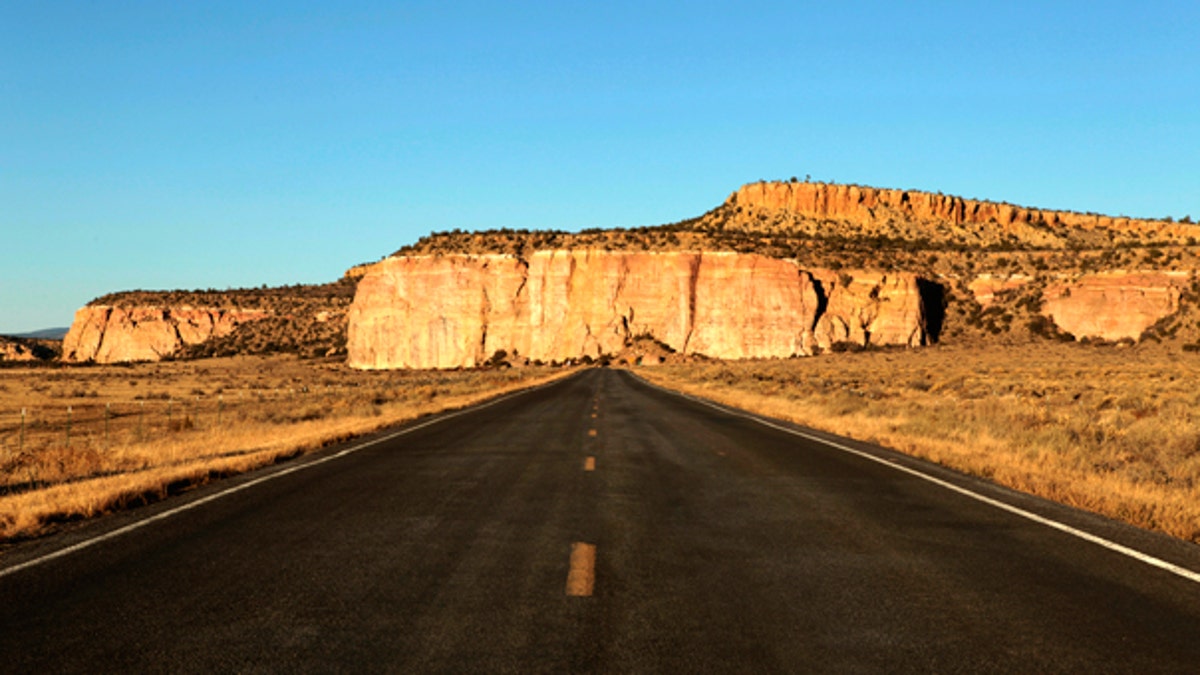
Las Cruces, N.M. – The Doña Ana County Sheriff Todd Garrison and his office opposes a bill to make the Organ Mountains and Desert Peaks east of Las Cruces a national monument because of safety and security concerns.
KFOX14 went along with two members of the office as they patrolled the remote areas of the New Mexican desert.
Capt. Manion Long and Lt. Jon Day specialize in border security; they’re focused on things like drug smuggling and human trafficking.
“We are concerned about criminal activity taking place in Doña Ana County,” said Long.
Among their chief concerns are around 340 square miles of wide open wilderness, stretching from the U.S.-Mexican border to Interstate 10 and beyond. It’s land where smugglers and criminals have carved out paths.
- Couple Wed At The Border Still Separated By Law
- A Kinder, Gentler Approach to the Border
- A Love Divided by the US/Mexico Border
- Border Security Expo Showcases New Gadgets
- ‘Left Behind: Life and Death along the Arizona Border’
- 7 Satisfying South-of-the-Border Meat Grills
- Scenes From The Mexico-Guatemala Border
- La Santa Muerte: Underworld Saint Goes North of the Border
- At Arizona’s Border Morgue, Bodies Keep Coming
“A lot of these routes, these smuggling routes, are historical in nature. Fathers have taught sons, grandfathers have taught fathers. It's a family enterprise,” said Long.
But it’s also land that could soon become a national monument.
New Mexico U.S. senators Tom Udall and Martin Heinrich have introduced legislation called the Organ Mountains-Desert Peaks Conservation Act to add a level of federal protection, preservation and distinction to the region.
While beautiful, there can be danger in the desert. “This is an open area. The fact of the matter is we don’t have a secure southern border. It is a national security issue,” said Long.
While on patrol, Long explained what he looks for. “I’m looking for tracks in the roadway, I’m looking for movement, dust, which could indicate movement, anything man-made,” he said.
Empty soda cans perched in the mesquite can be used to guide people through the tough terrain. The cans reflect light and serve as guide posts.
Long and his team have also found stones stacked in the desert. Typically, a few large stones will be stacked on top of each other, creating pillars.
“The stones don’t stack themselves,” said Long.
While on patrol, Day and Long returned to a location where they found carpet shoes buried in the sand just a few days before.
“We found carpet shoes typically associated with smugglers in an effort to conceal their footprints in the soft sand,” said Long.
After re-canvassing the area, they found several more sets of carpet shoes. “Our group is getting bigger,” said Long.
Water bottles, bottles of electrolyte drinks, bread and a can of sardines were also found near the shoes. All of the wrappers bore Spanish print. Next to the debris, a woman’s blouse had been left behind.
“I think they probably came up here, and you can actually see the trail right there,” said Long, pointing to a path seemingly carved out in the wilderness.
Within the last year, Long said, a rancher had also found abandoned bundles of marijuana near the area.
Long is worried federal protection if the land becomes a national monument won’t mean increased security.
“We don’t know how many were never caught or were caught after they were in this area,” said Long. “The fact of the matter is things that take place here can affect people in other cities tomorrow.”
Long said the group of at least five who wore the carpet shoes were not apprehended. However, Heinrich and Udall said local law enforcement will still have access to the area.
According to the senators offices's, nothing in the Udall-Heinrich legislation changes existing jurisdiction and authority, and nothing prohibits the Department of the Interior from developing agreements with the Sheriff’s Office to help enforce laws in the national monument if additional cooperation would be beneficial.
“The sheriff is not convinced that even if language is written into the bill that we will still have access,” said Long
Border Patrol believes the bill will help enhance their work along the border and have sent a letter of support to the senators to that end. But there remain miles and miles of public land in Doña Ana County where the Sheriff’s Office said criminals cross, which is why they want to keep careful watch.
“We like to think that just by virtue of us being out there that that has provided some level of security,” said Long.
The Sheriff’s Office supports designating some of the land in the proposal as a national monument, but not all of it. “Its public land, it’s our land, it should be enjoyed,” said Long.
The senators sent KFOX14 a joint statement regarding local law enforcement's involvement and the potential criminal activity in parts of the land.
"We introduced this legislation because of the overwhelming support from the community to preserve some of New Mexico’s most special places and experiences for us now and for generations to come, while promoting tourism and economic development in the region," the statement read.
"This proposal has been in development for many years and is responsive to the needs of each of the community stakeholders, including the Doña Ana Sheriff's Department. The bill is stronger for their input. The monument would continue to be managed by the BLM, and there will be no change in law enforcement jurisdiction. Furthermore, Border Patrol has assured us that the bill gives them more flexibility to patrol the border, and we are confident that the bill will improve the ability of both Border Patrol and local law enforcement to keep our communities safe."
The land is already has federal protection as a Wilderness Study Area.
For more stories go to kfoxtv.com
Follow us on twitter.com/foxnewslatino
Like us at facebook.com/foxnewslatino
